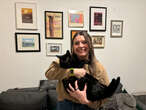Last week, in an article for Fast Company, author and tech executive Rebekah Bastian wrote about why she doesn’t read productivity books. The vast majority of these books are written by men who don’t shoulder the majority of parenting duties, she says.
“Like so many working women, I carry a substantial portion of the ‘second shift’ at home: cooking, homework help, bedtime routines, and general emotional support,” she writes. “The big chunk of uninterrupted time that these authors count on—whether it’s a 5 a.m. stretch of ‘sacred hours’ or a mini-sabbatical to reboot creativity—just doesn’t exist in my life. If I tried to follow their advice, I’d be setting myself up for failure or burnout.”
Bastian discusses some of the more sustainable habits that she incorporates into her life, including multitasking when appropriate. While fixating on maximizing productivity can lead to burnout, there are reasonable ways, such as this, to try to get more done in less time:
Embrace ‘No’
Sometimes the best way to make space for what you want or need to do is to decline opportunities that don’t advance your goals. Of course this doesn’t work for every situation—sometimes we all have to take on projects that we don’t want to do.
But it’s still worth practicing pausing before agreeing to new assignments, writes Mikaela Kiner, founder and CEO of uniquelyHR. “It’s sometimes helpful to ask, ‘If I don’t do this, will it matter in three weeks, three months, three years from now?’” says Kiner. “This way, you’ll get a more accurate picture of whether your lack of participation is genuinely critical.”
Prioritize creativity and rest
“As we race to our jobs, churn through never-ending to-do lists, and run from meeting to meeting, eyes glazed over from the frenzied nature of our daily lives, many of us believe that we need to work this way in order to deserve rest,” writes Katina Bajaj, cofounder and chief well-being officer of Daydreamers.
But downtime is critical to happiness and well-being, she says. “The antidote to our ‘productive’ nature is simple, but often overlooked. The key is to wake up a part of ourselves that we’ve numbed in order to exist on the hamster wheel: our naturally creative minds.”
Pursuing creative projects and prioritizing rest help make the time you spend working more productive, says Bastian. “Creative hobbies—like aerial arts or art projects—are also productive, because they nourish my mental health. And rest is productive, because it replenishes the energy I need to show up fully in work and life.”











No comments